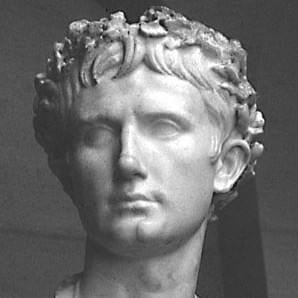
The Fourth Book Of The Odes Of Horace (Chap. 8) Quintus Horatius Flaccus (Ft. C. Smart)
На этой странице вы найдете полный текст песни "The Fourth Book Of The Odes Of Horace (Chap. 8)" от Quintus Horatius Flaccus (Ft. C. Smart). Lyrxo предлагает вам самый полный и точный текст этой композиции без лишних отвлекающих факторов. Узнайте все куплеты и припев, чтобы лучше понять любимую песню и насладиться ею в полной мере. Идеально для фанатов и всех, кто ценит качественную музыку.

Ode VIII
To Marcius Censorinus
O Censorinus, liberally would I present my acquaintance with goblets and beautiful vases of brass; I would present them with tripods, the rewards of the brave Grecians: nor would you bear off the meanest of my donations, if I were rich in those pieces of art, which either Parrhasius or Scopas produced; the latter in statuary, the former in liquid colors, eminent to portray at one time a man, at another a god. But I have no store of this sort, nor do your circumstances or inclination require any such curiosities as these. You delight in verses: verses I can give, and set a value on the donation. Not marbles engraved with public inscriptions, by means of which breath and life returns to illustrious generals after their decease; not the precipitate flight of Hannibal, and his menaces retorted upon his own head: not the flames of impious Carthage * * * * more eminently set forth his praises, who returned, having gained a name from conquered Africa, than the Calabrlan muses; neither, should writings be silent, would you have any reward for having done well. What would the son of Mars and Ilia be, if invidious silence had stifled the merits of Romulus? The force, and favor, and voice of powerful poets consecrate Aecus, snatched from the Stygian floods, to the Fortunate Islands. The muse forbids a praiseworthy man to die: the muse, confers the happiness of heaven. Thus laborious Hercules has a place at the longed-for banquets of Jove: [thus] the sons of Tyndarus, that bright constellation, rescue shattered vessels from the bosom of the deep: [and thus] Bacchus, his temples adorned with the verdant vine-branch, brings the prayers of his votaries to successful issues.
To Marcius Censorinus
O Censorinus, liberally would I present my acquaintance with goblets and beautiful vases of brass; I would present them with tripods, the rewards of the brave Grecians: nor would you bear off the meanest of my donations, if I were rich in those pieces of art, which either Parrhasius or Scopas produced; the latter in statuary, the former in liquid colors, eminent to portray at one time a man, at another a god. But I have no store of this sort, nor do your circumstances or inclination require any such curiosities as these. You delight in verses: verses I can give, and set a value on the donation. Not marbles engraved with public inscriptions, by means of which breath and life returns to illustrious generals after their decease; not the precipitate flight of Hannibal, and his menaces retorted upon his own head: not the flames of impious Carthage * * * * more eminently set forth his praises, who returned, having gained a name from conquered Africa, than the Calabrlan muses; neither, should writings be silent, would you have any reward for having done well. What would the son of Mars and Ilia be, if invidious silence had stifled the merits of Romulus? The force, and favor, and voice of powerful poets consecrate Aecus, snatched from the Stygian floods, to the Fortunate Islands. The muse forbids a praiseworthy man to die: the muse, confers the happiness of heaven. Thus laborious Hercules has a place at the longed-for banquets of Jove: [thus] the sons of Tyndarus, that bright constellation, rescue shattered vessels from the bosom of the deep: [and thus] Bacchus, his temples adorned with the verdant vine-branch, brings the prayers of his votaries to successful issues.
Комментарии (0)
Минимальная длина комментария — 50 символов.












